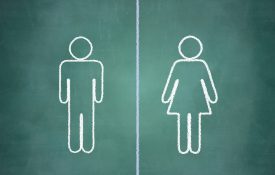-
Genetic Research Helps Scientists Understand Alcohol Use
A rat, a mouse, and a vole walked into a bar… It isn’t just a bad joke: According to John Crabbe, who delivered the 16th Annual Mark Keller Honorary Lecture at the National Institute of Health on October 25, rodents can teach us a lot about the way humans behave when they consume alcohol. Crabbe, who serves as Director of the Portland Alcohol Research Center, was honored for pinpointing genes and neurobiological factors that shape the way mammals respond to alcohol. Breeding mice that are resistant or susceptible to the negative results of alcohol use allowed Crabbe to study interactions among genes, environmental factors, and alcohol-related behaviors.
-

Sexism and Gender Inequality
Data from 57 countries indicates that an individual’s sexism leads to gender inequality in the society as a whole.
-
Curiosity + Diligence as Good as Plain Intelligence, Researchers Say
International Business Times: Curiosity and diligence are as important as intelligence for a student's success, according to research released Wednesday. A European trio analyzed 200 existing studies that included 50,000 students and found that curiosity influenced academic performance. Not only that, but throw in contientiousness, and average-intelligence students shone as brightly as those deemed intelligent. Put together, conscientiousness and curiosity had as big an effect on performance as intelligence.
-
Tel maître, tel chien
Le Matin: Une étude scientifique menée il y a quelques années dans la revue américaine Psychological Science prétendait démontrer que l'homme a tendance à choisir un compagnon canin qui lui ressemble. Les chercheurs concluaient que les personnes achetant un chien de race, le choisissaient en fonction de ressemblances physiques ou de traits de comportement communs. C'est donc une merveilleuse excuse pour voir ou revoir une galerie photos de "Tel maître, tel chien" ou vice-versa! Read the full story: Le Matin
-
Wat maakt een briljante schaker?
Metro Netherlands: Wat onderscheidt een goede van een briljante schaker? Moet je aanleg hebben of is het een kwestie van oefenen? Als we de bestseller auteur Malcolm Gladwell moeten geloven hoef je geen geniaal brein te hebben voor succes of een aangeboren talent. Hoe getalenteerd je ook bent, je moet tienduizend uur trainen om echt goed te worden, zo staan beschreven in zijn boek 'Blink'. Dat betekent tien jaar lang twintig uur per week oefenen. Zo veel tijd kost het de hersenen om alles te assimileren wat nodig is om een sport of instrument werkelijk te beheersen.
-
Thinking Out of the Box: How Physical Experience Enhances Creativity
Huffington Post: When Hollywood producer Steven Spielberg was working on his 1977 hit movie "Close Encounters of the Third Kind," he spent long hours puzzling over the artistic texture of the film, trying to get just the right feel. Late one night, he decided to put his work aside and take a drive to clear his head. He headed up Hollywood Hill to one of the vistas overlooking Los Angeles and -- impulsively, for no reason at all -- he did a hand-stand on the roof of his car. With his perspective on the illuminated LA cityscape turned topsy-turvy, he "saw" what would become the alien visitors' spacecraft. This Hollywood legend may be apocryphal, but creativity gurus love it anyway.

